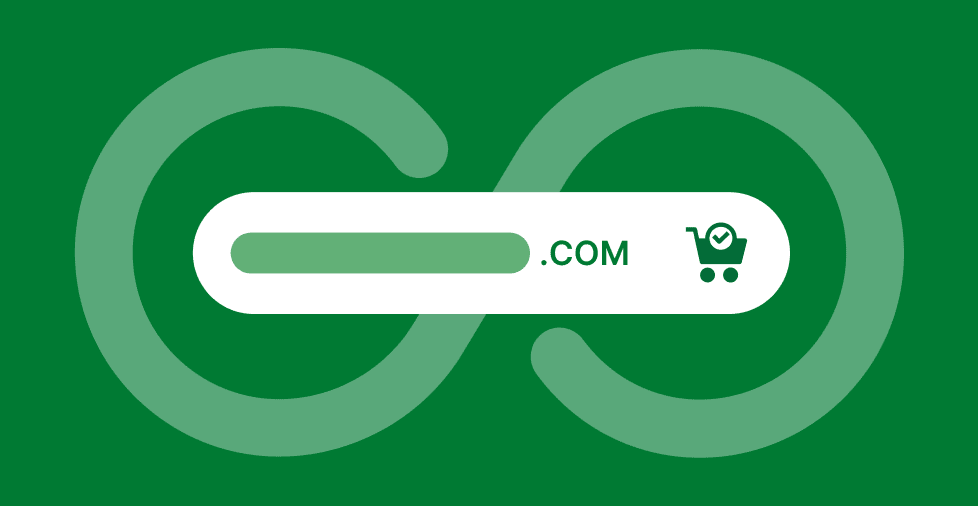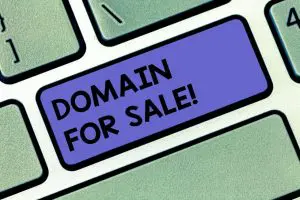Key takeaways:
- You can’t own a domain, but once you lease it for 1 to 10 years, it’s yours to use. To keep it active, you’ll need to renew your registration on time.
- If the renewal is missed, the domain gets deactivated. That means your website, email, and anything tied to it will stop working until it’s paid for.
- But that doesn’t mean you lose it right away. You’ve got 65 days to get it back: 30 days of grace, 30 days of redemption, and 5 days before deletion. After that, it’s released to the public for anyone to register.
You’ve finally captured your dream domain, and you don’t want to lose it. It’s a feeling many domain owners share. So, can you buy a domain name forever?
The short answer is no—you can’t buy a domain outright. Instead, you lease the name for a set period, typically one to ten years. This system keeps the internet fair by ensuring names that aren’t being used become available for others to register.
But don’t worry. While you can’t own a domain forever, you can certainly lock it in for the long term. This article will explain how the leasing process works and what you can do to ensure your domain stays yours for as long as you need it.
What is domain leasing?
Domain leasing is like renting an apartment. When you pay for it, you have the right to use it for the duration of your lease. You can claim the address and use it as you see fit, provided that you keep paying rent.
For domains, however, you register them. This puts the domain under your name. In that time, you own it, so long as you stick to the terms of the agreement.
The Internet Corporation for Assigned Names and Numbers (ICANN) is the organization responsible for setting these terms. ICANN rules stop the permanent sale of domain names to ensure fairness. So, you can’t own a domain name permanently, but you can control it long-term by renewing it. This system blocks people from buying domains just to hoard them. It also prevents any one entity from controlling too many domains forever.
Here’s an overview of ICANN’s guidelines for owning a domain:
- Terms of domain registration. As previously mentioned, you can’t own a domain outright. Instead, you register or renew it for a predetermined period between 1 to 10 years before it expires to maintain control.
- Domain registration through accredited registrars. Only accredited registrars can officially register and lease domain names. They are authorized to manage registrations and renewals, ensuring everything is compliant with ICANN’s rules.
- Claims to domain use. Registering a domain grants you exclusive rights to use it, but it doesn’t make you the owner. If someone else claims it as their brand or trademark, you may lose the domain. To resolve these kinds of issues, go through the Uniform Domain Dispute Resolution Policy (UDRP).
Why can I not own a domain forever?
Think of domains as actual addresses. While there are many options, they aren’t infinite. ICANN makes sure everyone has a fair chance at using a domain. Domain registration limitations are in place to ensure fairness. In doing so, it:
- Prevents domain hoarding. Domain flippers often hold onto domains to sell them at a profit. The lease limit prevents them from acquiring too many, giving everyone the opportunity to register their desired domain without paying inflated fees.
- Promotes domain turnover. Regular lease renewals help return inactive or unused domains to the pool, making them available for others to register.
- Maintains accurate WHOIS information. Regular renewals help keep domain records up-to-date.
While you can’t lease a domain forever, you can keep it long term. The renewal process is simply there to ensure domains stay in use and are actively managed by those who really want to keep them.
How to secure long-term domain ownership
Securing long-term domain ownership helps protect your brand, prevents competitors from snatching up your domain, and ensures your website remains accessible.
Here are some tips to help you maintain control of your domain for as long as you need it:
- Ensure accurate WHOIS information
- Setup auto-renewal
- Update payment details
- Protect your domain
- Register for the maximum period
We’ve covered these amazing tips in more detail for you below.
Ensure accurate WHOIS information
Keeping your WHOIS information updated protects your domain. These records prove you own the domain and settle disputes. Incorrect details can cost you the domain or create ownership issues. Always keep your WHOIS records accurate to protect your domain’s legitimacy and security.
If your contact information or address changes, be sure to update them in your domain ownership records. This ensures your ownership is properly documented and reduces the risk of losing your domain or encountering legal issues.
Set up auto-renewal
When you’re busy working on your website, it can be easy to forget your domain payments. Set up auto-renewal instead, and you’ll have peace of mind knowing your renewals will always be on time.
Update payment details
Keep your payment details up to date to avoid missed renewal reminders or failed payments. Add a backup payment method as well, so if your primary method fails, your domain will still get renewed on time. This helps prevent ownership gaps and domain ownership loss.
Protect your domain
To safeguard your domain, it’s important to protect both its expiration and privacy. Here’s what you need to activate to ensure that:
- Domain expiration protection. Domain expiration protection keeps the domain in your name once you’ve missed a payment. This gives you extra time to resolve any renewal issues.
- Domain privacy protection. When you register a domain, your ownership details become accessible to the public through WHOIS lookup. This can make you vulnerable to spam and domain hijacking. While it’s important to keep your information accurate for your registrar, you don’t have to expose it to everyone. You can use domain privacy protection to keep your details hidden.
Register for the maximum period
Registering your domain for up to 10 years ensures long-term ownership and reduces the need for frequent renewals. This minimizes the risk of accidentally forgetting to renew your domain.
Why is long-term domain registration good for your brand?
Whether you register your domain for 5 years or 10, you’ll still have to pay for it. So, why does it matter how long you register it for?
Think of it this way: paying in advance gives you a buffer. You’ll have more time to focus on growing your business without worrying about renewals. Plus, there are added perks to long-term domain registration. Here’s why it’s worth considering:
- Builds credibility
- Improves SEO potential
- Reduces risk of loss and saves you money
If you’d like to know how long-term registration helps you with these, we’ve broken them down for you in the next section.
Builds credibility
Registering a domain for an extended period shows that your business is committed to maintaining its online presence. This helps build trust with customers by signaling stability and professionalism.
Frequent domain changes or losing your domain entirely can confuse customers, weaken brand recognition, and harm your credibility. Long-term registration ensures your brand remains consistent and dependable, making it easier for customers to find and trust your business over time.
Improves SEO potential
The length of your domain registration does not directly impact SEO rankings. However, as a general rule, the longer you keep a domain, the more trust you establish with both site visitors and search engines.
It ultimately comes down to your accumulated backlinks and brand recognition. Holding onto these signals that you’re a reliable source of information can positively influence your SEO performance.
Reduces risk of loss and saves you money
Many domain registrars offer discounts for multi-year registrations. This is cheaper for them, so they pass the savings onto you. By paying for several years upfront, you secure a lower rate, avoid future price hikes, and save money compared to annual renewals.
This makes it easier to track and make your payments on time. In turn, you avoid losing your domain and giving others the opportunity to hijack it.
What happens if you fail to renew your domain?
While long-term leasing reduces the risk of missing a renewal, it doesn’t eliminate it entirely. However, if you do miss it, you won’t lose your domain right away. Here’s what really happens:
- Your domain becomes inactive. Your website goes offline, leading to a loss of visitors, potential revenue, and a drop in search engine rankings.
- You have a 30-day grace period to pay. Your domain remains with your registrar, and you can reactivate it once you’ve paid the renewal fee.
- Your domain goes into a 30-day redemption period. On top of the grace period, you have another month to secure your payment. However, to renew your domain, you’ll need to pay a redemption fee of $50–$150.This is also when domain hijackers start to surface. They take advantage of the stressful situation by promising help to reacquire the domain or exploiting weaknesses like poor passwords and security questions
- Your domain goes into the pending delete phase. Once the redemption period is over, your domain is sent back to the registry, where it’s ’held’ for 5–7 days. This serves as a final check to see if you really want to let it go.
- The domain goes into deletion. It’s then released back into circulation, making it available to anyone, including you. At this point, it returns to its standard rate, but be aware, domain hijackers may also be waiting to snatch it up.
What if you have Domain Expiration Protection (DEP)?
If you fail to pay, your domain is deactivated, and DEP kicks in. This gives you an additional 30 days to make a payment. If you’re still unable to renew your domain, your grace period begins, giving you a total of 60 days to sort out your renewal before you’re charged a redemption fee.
Register your domain for as long as possible!
Now that you understand how domain registration works and why you can’t buy a domain name forever, it’s time to secure it for as long as you can.
At Network Solutions, you can register your domain for up to 5 years. Setting up auto-renewal is a piece of cake, and our Domain Expiration Protection helps make sure you never lose your domain by accident. With competitive pricing for long-term domain registration, you can rest easy knowing your domain is in good hands.
Get your domain with Network Solutions and take control of its future today!
Frequently Asked Questions
You cannot buy a domain name permanently, but you can register for it for up to 10 years. To maintain long-term control, enable auto-renewals with your domain registrar.
As long as you continue to renew your domain registration, you can maintain ownership for as long as you’d like. Typically, domain leases range from 1 to 10 years, meaning you can register your domain for a maximum of 10 years at a time.
No, buying a domain requires periodic renewals. You must renew your domain registration every 1 to 10 years, depending on the period you choose.
Registrars may offer long-term leasing options with automatic renewals, but actual lifetime ownership of a domain isn’t possible. The lease would require periodic renewals and depend on the registrar’s continued service.
No, domains cannot be obtained for free forever. Some services offer free domains temporarily, usually as part of hosting packages, but they will eventually need to be renewed.




